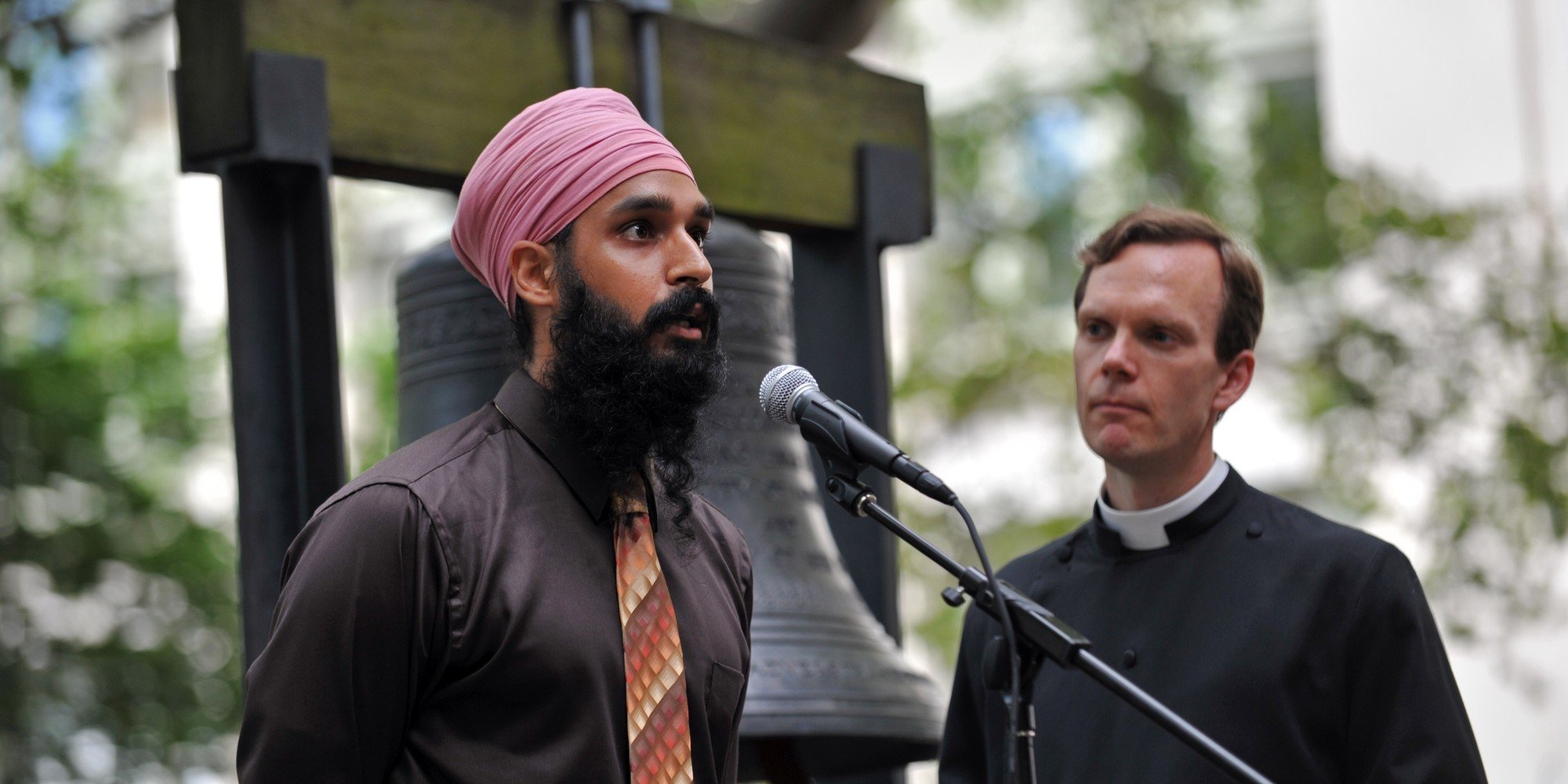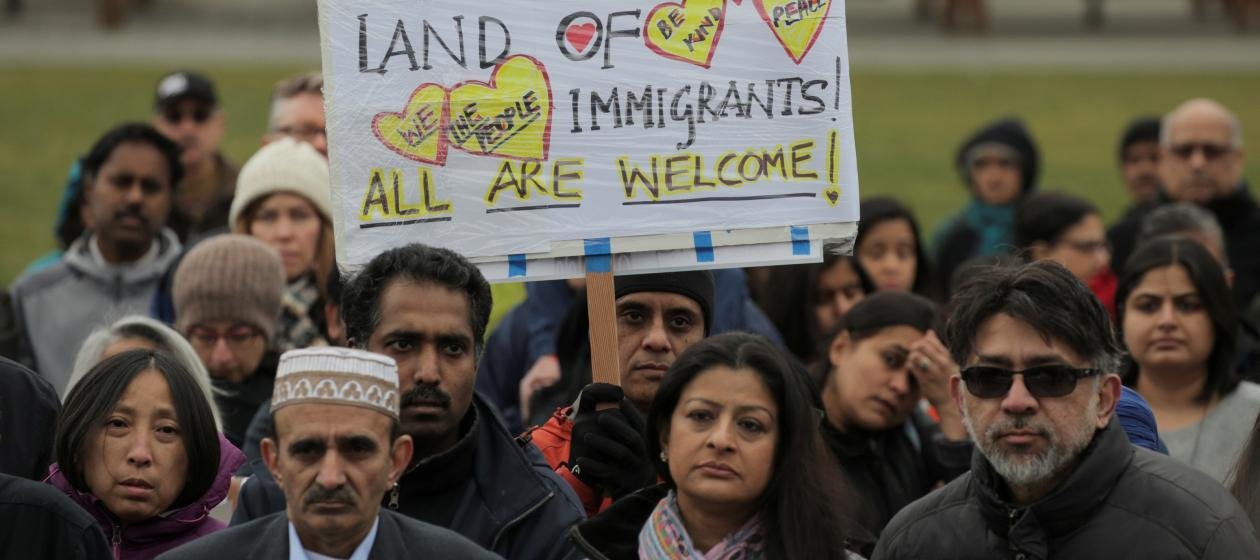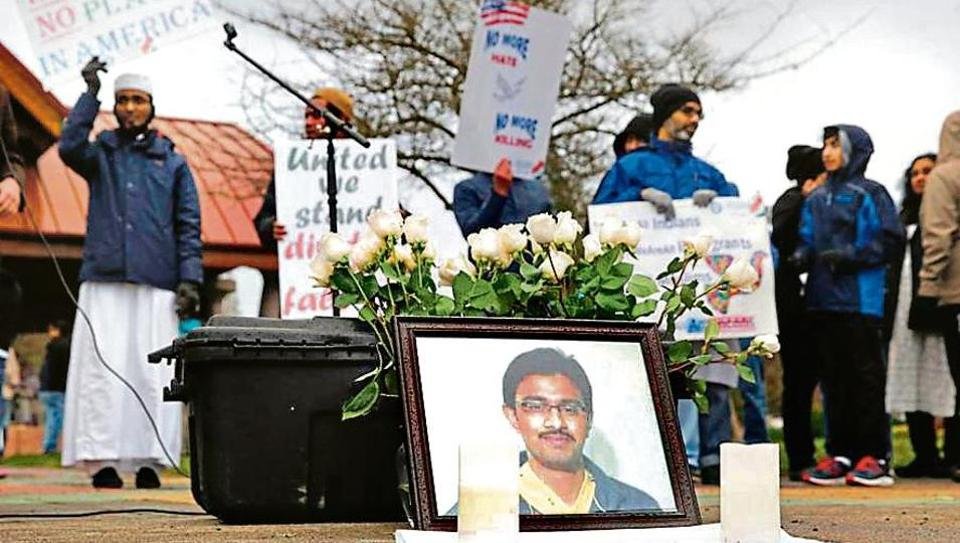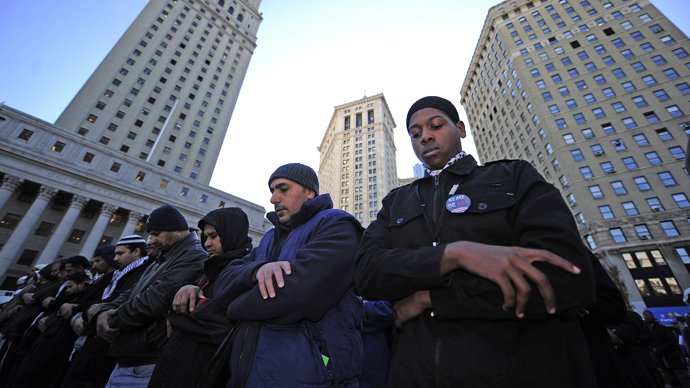New Delhi: Last week, an Indian-American Sikh doctor in Indiana, US, received death threats from an anonymous number through a text message on his mobile. The incident comes in the wake of multiple “hate crimes” presumably fueled by the vicious anti-immigration atmosphere in US ever since President Donald Trump took over.
With a three million-strong Indian-American community based in US, the community is trying hard to ensure safety and put an end to what looks like a growing cycle of hate and xenophobia.
To get a better understanding of what is it like to be an Indian in US in current scenario, ScoopWhoop News interviewed prominent New York-based Sikh civil rights activist Simran Jeet Singh.

An Assistant Professor of Religion at Trinity University, Singh is also a Senior Religion Fellow at the Sikh Coalition – a community based non-profit working for the constitutional rights of Sikh community in the United States. Singh, who holds a PhD from Columbia University, is an active campaigner of human rights, religious freedom, civil liberties and social justice in US.
His columns have appeared in The Guardian, The New York Times & The Washington Post.
Excerpts from the interview.
SW: Can you help us understand the kind of environment Indians and other citizens from South Asian countries are living in currently, particularly in the aftermath of series of acts of hate crimes witnessed in the country?
In some ways, things have changed for the Indian American community. While Sikhs have been well aware of the problems of discrimination and hate violence, most Indian Americans had thought they were immune to racism in America. Indian American community is finally realizing that they are just as vulnerable as any other minority in this country & that is causing a sort of identity crisis.
SW: Since you are an active community member, what kind of concerns have people shared with you? Are there whispers of returning to India or other native countries?
I have not heard anyone speak seriously of returning to India due to a fear for safety or security in America. While people are becoming a bit concerned due to recent attacks, I think most Indian Americans realize they are generally safe and comfortable here in the US. The recent attacks have shaken the Indian American community and opened its eyes a bit – but there does not seem to be a deep-seated fear.

The current administration is not directly targeting Indian Americans in the way that it is targeting other minority communities. If the government begins to do that, then perhaps things might change – but for now, I think most are not fearful enough to seriously consider leaving the country.
SW: How is the Indian community and other vulnerable people reacting to the situation? Is there a mechanism in place which ensures security and counselling to allay the fears of the community?
In moments of tragedy like this, people have a tendency to come together to support and empower one another. We’re seeing this happen across South Asian communities right now. Vigils, community discussions, local programs – these are all important programs we are seeing around the country.
It’s heartening to see people coming together at a time of difficulty and discuss the very serious issues that have been largely ignored by South Asian Americans.
SW: Many link Donald Trump with the growing xenophobia in the country. Do you think this pattern could be linked to only one factor? What’s the common thread you witness in all these incidents of violence against Indians?
There are multiple factors contributing to the rise of xenophobia in America – and certainly Trump’s ascendancy has played a key role. His unfiltered rhetoric against various minority groups in America, including immigrants, has fanned the flames of xenophobia and emboldened people to act on their negative feelings.

The growth of white nationalism and white supremacy are extremely troubling phenomena in America today.
SW: What’s the reaction of law enforcement agencies and local politicians to the situation? Is there a practical & assuring response from their side?
Law enforcement agencies have, for the most part, been doing a good job in handling hate crimes when they occur. However, our national politicians are not taking these issues seriously at all, and therefore they receive very little public attention or resources. These crimes will continue to happen until and unless our political leaders take a stand and say that such hate is unacceptable and devote resources to addressing it.
SW: Back home, what should be the role of Indian government and Indian society to address the issue? Should the initiative go beyond diplomatic meetings?
I think it’s great that Desis (Indians) have shown interest in addressing injustices that are happening in other parts of the world. We should all work to address injustice, anywhere and everywhere that it occurs.
At the same time, we all know that there are similarly deep-seated problems of hate and ethno-nationalism within India today that mirror the kinds of issues we are seeing in America. I would love to see the Indian government take as much interest in securing equality and justice for all those in India as well as those who now live elsewhere.
SW: As a citizen of United States, how do you think has America changed in the aftermath of President Donald Trump’s rise to the post of President?
The biggest shift that has occurred since Trump’s election is the sanctioning of discrimination against marginalized communities.

Whether you are an immigrant, a woman, a Muslim, or any other minority group – people now feel more comfortable attacking others because of their backgrounds. This is a troubling development.
SW: It might be a bit more tough for Muslims & Sikhs – for their easily distinguishable appearances – from India and other South Asian nations in the current situation. How’s the diverse community dealing with the situation internally?
Sikhs have recognized that the only way to address such xenophobia is to stand in solidarity with other communities that have been affected by it. Since the recent attacks, other Indian Americans seem to be realizing this as well, South Asian communities have begun to discuss openly the ways in which we can stand in solidarity together in order to protect one another and to stand for humanity.
Unfortunately, there is still a large contingent of Indian Americans who side with ethno-nationalists and extremists and continue to support Trump’s administration. My hope is that these individuals come to realize that nothing good will come from marginalizing others and that we are all strongest when we stand together.
SW: Ignoring the attackers, if we talk about the attitude of a common US citizen to Indians and other people of diverse regions, has there been any significant change in that?
I have not witnessed a noticeable change in how most Americans view Indians. For the most part, Indians are not direct targets of current bigotry. Muslims from various countries are those who are being denigrated most by our political leaders, and most of the recent attacks against South Asians appear to be motivated by anti-Muslim feelings.
SW: Will you advise an aspiring Indian to travel to US this time for job or travel or anything?
I sincerely believe it is safe for Indians to travel to the US at this time. Certainly there are a few instances of violence, but these are few and far between. I have lived here for more than 30 years and have never experienced a major assault or attack. I think Indians can travel here with confidence that they will be safe and secure.
SW: Should Indians start looking towards other countries?
I think that would be a good idea at this point given the direction in which America is headed. It’s still a good place to live in, but, if someone is looking to start a new life for themselves and their families, I might advise them to go somewhere where their humanity will be respected and honoured.

















